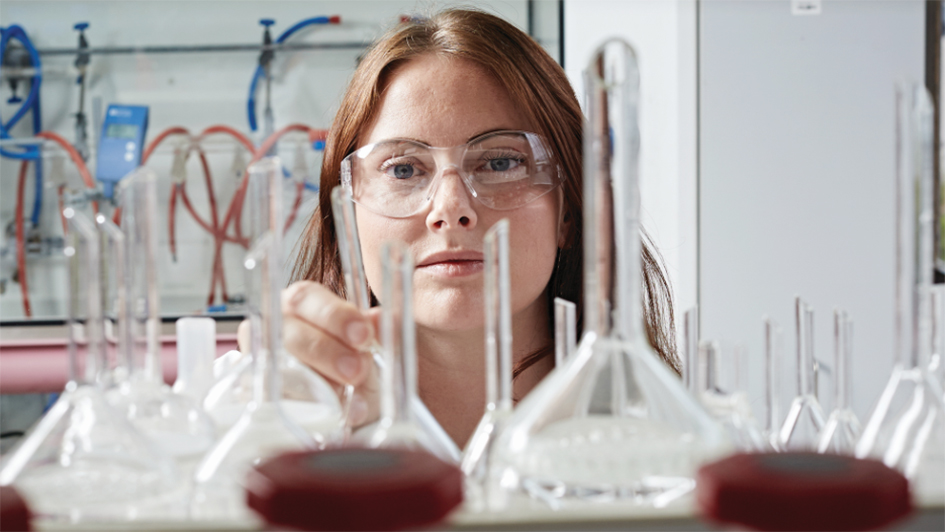
The UK punches well above its weight on the global stage for research prowess.
While we have only 0.9 per cent of the world’s population, we contribute 3.2 per cent of global expenditure on R&D, have 4.1 per cent of the world’s researchers and publish 6.4 per cent of the world’s research articles – rising to 15.9 per cent of the most highly cited articles.
And the UK life-science industry is a particular jewel in the crown. Employing close to a quarter of a million people in the UK and generating in the region of £74 billion of turnover per year, life-science businesses form a crucial part of the UK economy.
UK biotech companies attracted a record £2.2 billion in investment last year, including 40 per cent (£1.1 billion) of the venture capital funding that went into the sector across Europe.
And we are now seeing the signs of a potentially profound change in the global life-science industry, with companies increasingly looking for locations in urban innovation districts, alongside higher education institutions. The UK is well set to take advantage of the shift.
We’re convinced that working in close partnership with industry is essential to take results into the clinic as soon as possible, and make sure our research delivers maximum benefit for cancer patients.
Find out more
Why is the UK successful?
One of the major, long-term reasons for the UK’s success in the life sciences lies in our university sector.
Powerful on the world stage – with four of our universities in the global top 10 – our universities are also part of a well-developed UK knowledge exchange industry, which drives and facilitates interactions between academics and the commercial sector.
Successfully collaborating with industry is a part of our identity here at The Institute of Cancer Research, London.
We are the highest-ranked higher education institution in the UK for the quality and impact of our research, and we are also the UK’s leading academic institution at working with industry. That’s thanks to a range of factors, relating to our own internal culture – our focus on innovation, translating our discoveries to the clinic, and our cadre of world-leading cancer researchers – and external influences, including a thriving life-science industry in London and the south east of England.
We benefit from UK-specific factors including the influence of large medical research charities like Wellcome and Cancer Research UK, which play an instrumental role in providing the resources that make fundamental life-science research possible at UK universities.
The UK’s National Health Service, a unique institution in world medicine, also plays a powerful role in driving new treatments forward, through its integration with our university sector.
Many clinical trials that change worldwide clinical practice are only possible here at the interface between UK higher education institutions and our NHS.
Top clinical academics here lead first-in-man trials of new drugs discovered thanks to research in our universities, and lead global phase III trials that establish them in the treatment of disease; pioneers in clinical trials statistics work with consultants to repurpose existing drugs; and universities and NHS hospitals pull together across the UK to transform radiotherapy.
In the UK, we also have a Government that is strongly supportive of the life sciences. In 2017, the UK saw the highest level of government spend on health R&D in Europe, and globally second only to the US.
In spite of Brexit, our Government continues to support and invest in the UK life sciences, including through the Industrial Strategy, which aims to increase R&D spending to 2.4 per cent of GDP by 2027.
Whatever happens with Brexit, the UK is and will continue to be a great place to do cancer research. Although Brexit could cause many challenges – a topic The Institute of Cancer Research (ICR) has not shied away from – the UK’s strengths, from our university sector to our NHS, will not go away.
The future
All of these factors place the UK in a good position to continue as a leaders in life sciences as we begin to see what could be a lasting global shift in the industry.
Smaller companies are proliferating, including in the UK, and are responsible for an increasing proportion of the global biopharmaceutical products in development. Smaller companies now generate around 70 per cent of the total pipeline of therapies, as the proportion of therapies produced in-house at pharma companies has reduced.
In the UK, companies are often looking to co-locate with higher education institutions in urban innovation districts or ‘knowledge clusters’ rather than isolated campuses – a shift which has already happened in the US.
Local and national government is continuing to support and invest in this new model of public-private partnership in places where academics and the private sector come together to tackle some of life sciences’ biggest questions. A crucial benefit of these developing clusters is the ability to rapidly transfer knowledge between partners.
One of the UK’s most ambitious new urban innovation districts is being built here at the ICR, in collaboration with the London Borough of Sutton. The London Cancer Hub aims to attract a range of partners including innovative biotech, pharma, medtech, and software and data companies to co-locate with ICR researchers and our hospital partners at our campus in Sutton, South London.
Life-science clusters like The London Cancer Hub seek to take advantage of some of the factors that make the UK unique: including a high concentration of world-leading university research, national and local government support for the life sciences, our NHS, and a powerful charity sector that helps fund early-stage research that leads on to the discovery of new treatments for disease.
Over the next decade, the UK will need to ensure it holds on to its advantages in these areas to maintain its leading position in global life sciences.
comments powered by